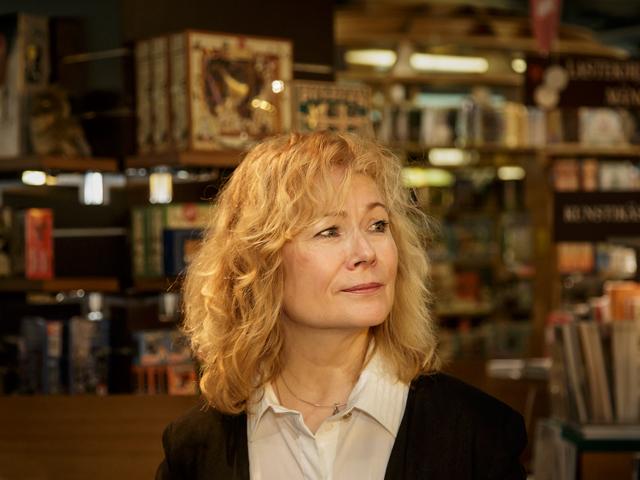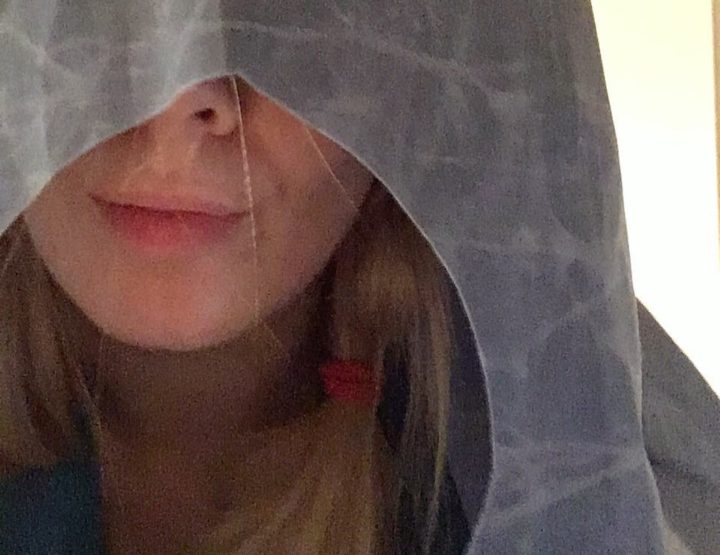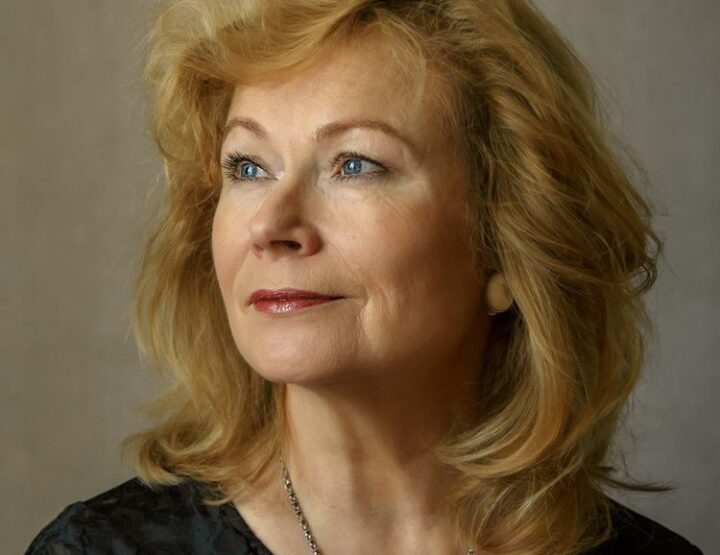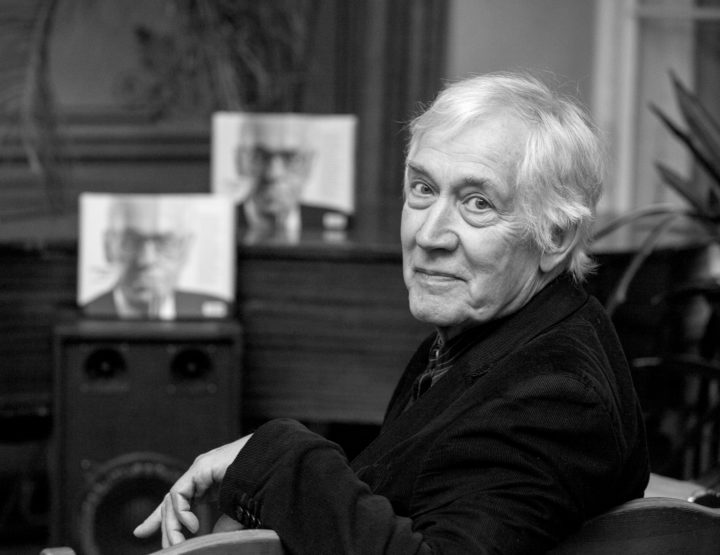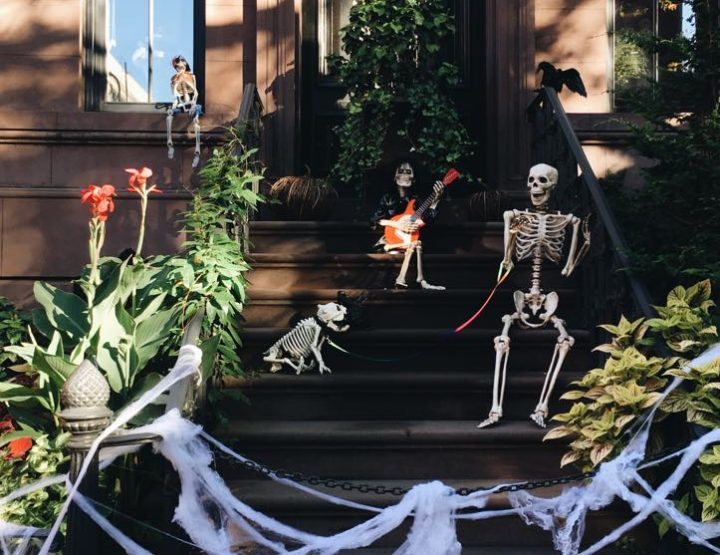I’ve known Doris Kareva for many years. I know her to be a good person, editor, and poet, who works persistently to help and publish other poets, and who has a keen sense of detail. Throughout our friendship, Doris has discreetly shared quite a lot of good advice with me, just as she has with many others, and her poetry has been an accompaniment to innumerable lives.
I look around me and it feels like the late 1990s again: so many people view poetry as the creation of beautiful words, imagery, and linguistic tricks. They believe one should be captivating when conveying philosophical trivialities. Or something like that. Is there anticipation in the air for “poetry to be more like poetry”?
I feel that in literature, just like in everything else, the vogue or trend moves forward in a slight zigzag, like the lines down an adder’s back, but all methods and forms generally always exist and are visible in a free society. One person gravitates more towards attractive imagery, another towards heated declarations, a third towards linguistic somersaults, but even so, they’re not disconnected. In my opinion, all of these opportunities undulate in poetry endlessly, often interweaving.
But if you ask me, then yes, I yearn constantly for poetry to be more like poetry! Not beautiful or resonant or full of tricks, but revelational. Where everything habitual is nudged out of place – or, on the contrary, into place – with just a few words.
And at the same time, another trend: there’s an incredible number of poets everywhere! And I’m not just talking about online: I mean that physically, large and active poetry communities are gathering, although sometimes they’re temporary. Is this also a sign of the time?
The way poetry is flourishing in our current era of multiplicity is not exceptional. Everyone can and may publish their writing, and everyone longs for feedback. I’m not at all sure there’s enough of the latter to go around. But the fact that such communities are gathering is positive, in and of itself; even if it’s only for a short time. Poetry certainly has a uniting force.
Where and how should a poet be visible, if at all? I sometimes think that the “great literary history” is over and done with: that in one hundred years, people won’t commemorate the beginning of the 21st century by way of great authors and their works in the same way that the beginning of the 20th century is commemorated.
In my mind, a poet shouldn’t have to be visible. When someone reveals their inner world – their dreams, fears, and yearnings – then for the reader it might actually be better not to know anything about the author apart from their name. It’s the same in all forms of art: I suppose that more than anything else in life, I’ve been inspired by encountering the unknown. It always feels like what’s known can wait. And it’s not at all impossible that in a hundred years the authors who are relatively unknown right now will have turned out to be very insightful and widely discussed.
You’re going to be releasing a poetry collection in English titled Days of Grace soon. This isn’t a first for you, but even so, what are you feeling? Is being published in a big linguistic space always a special and spectacular occasion for a poet?
It’s taken years and years for this collection to be finished, and I believe most of the poems are from the last century. I can’t anticipate the emotions I might have before I’m holding the book physically. But I am, of course, grateful to my talented, very scrupulous and sensitive translator, Miriam McIlfatrick, and to the publisher Neil Astley at Bloodaxe Books, who has patiently and accommodatingly awaited this book for years without losing faith in me.
What kinds of poems were picked for it, and what kind of contact do you have with your poems? Are your earlier pieces also close to body and word, or do you live in your new ones? I sometimes feel like I already have a hard time speaking to the younger me.
I don’t feel like I’ve changed all that much in terms of anything intrinsic; I’d sign my name to my school-era truths even now. So, in other words, I understand the young Doris quite well, and for some reason, I believe it’s mutual.
Poems are like pebbles or shells that are collected and taken with you at some point: they’re interesting to observe from time to time, without necessarily even knowing what beach they came from. They can also form different patterns. And qualities you might not even have noticed before may surface through those patterns, and by rearranging them over and over again, you start to grasp a notion of the big picture: all the beaches you’ve ever wandered, the world as it has shown itself to you. I would certainly compose a different collection now, but one would not be more truthful than the other.
The 1970s and the atmosphere back then: you entered the poetry scene at a time that was very difficult for poetry. There’d just been a “gust of freedom” – if it could be called that under the Soviet regime – but then, they started closing off the taps again. Even so, the poetry you wrote then was very bold. Were you foolhardy?
Hardly, more like headstrong. I probably wouldn’t have submitted my writing to any competition, but since the Youth Literary Event ’76 issued a call simply for poetry, I thought: Why not? If I’d known what it would lead to – the whole public burden – then I’d probably have made a different decision.
Who made up that space and that tension of being for you? What were the era and the atmosphere like? Were there oases of freedom, in bohemian nests or at home with a book?
Feasts for four walls, four eyes. / High tension captured in bare palms[1] was the young Kareva’s answer to her own question of what it is that keeps the soul awake. Or what binds one to life, if anything at all.
Communication with friends was very personal and intense; we wrote letters by hand. If you wanted to meet someone, you had to walk around and find them by intuition: there were relatively few telephones, and many were tapped. Letters traveled slowly and there were practically no other forms of communication, aside of an occasional telegram. But intuition worked flawlessly, for the most part.
The best cafés – Pegasus, Moskva, Varblane, and Akvaarium in Tallinn; Werner and Ülikooli in Tartu – were highly charged environments where you could sometimes sit the whole night with only a single coffee. You could write or read there alone, and could always find like-minded thinkers if you were seeking company. Or you could come across acquaintances, with whom you didn’t necessarily have a reason to talk, though you might exchange smiles of recognition. It was a kind of community you were tied to by an intuitive sense of belonging.
You even had to hide from the KGB after being kicked out of university: I believe you were sleeping somewhere on a couch in Looming’s[2] little editorial office? Do you sometimes consider how today’s poets don’t have that same kind of tension, or fear, or responsibility for every word they write?
Unfortunately, I didn’t have the luxury of sleeping on a couch somewhere: it was usually on the floor, for the most part, in any place I could: in the attic of a cultural center, in a basement studio, or in a church manor… There was a coat lying on the floor behind a typewriting desk in the corner of the smallest office at the end of the Looming offices’ hallway. I was able to curl up on it and fit beneath an open umbrella. I only ventured outside at night, mainly.
The tension was constant, yes; the fear of unintentionally betraying not so much yourself, but someone else. We knew what was happening: some were left to rot in an insane asylum, others were sent to a prison camp… I burned my notes, letters, and papers. A sense of relief came only several years later, when I learned that nothing bad had happened to anyone because of me. Yes, that era taught you responsibility, but no doubt everyone’s own lesson was different. I wouldn’t wish that kind of teaching upon anyone.
Later, especially after independence was restored, you witnessed the self-destruction of a number of geniuses, of Estonia’s true creative motors of that time. Of course, capitalism and the market economy aren’t lofty ideals in and of themselves, so when you realize you’ve been defending them instead of freedom, something might break inside of you, but that’s not all. What happened?
Such things aren’t so simple: the causes are almost always intertwined, and every individual’s choice is deeply personal. Occasionally, a person tries to dampen another seemingly unbearable pain by inflicting harm upon themselves, like how a fox caught in a trap will chew off its own paw. No one can feel the full depth of another person’s pain, nor can they do anything about it, more often than not. Even so, simply being there for another person and sympathizing can be of great help. But even that isn’t always enough.
Do artists have an ethical obligation or an ethical dogma, i.e. should they have one?
That’s a good enduring question. The way I see it, artists don’t hold any special status. One person simply feels that they have a moral responsibility, while another doesn’t. A third may wish to have one, but is unable to follow their beliefs. It can be described like the title of a Peeter Mudist painting: “Each to his own abilities.” You can make demands solely on yourself, or on an individual whose authority requires them to follow a set of ethical standards.
You’ve translated prolifically. I often have your translation of Rumi[3] within arm’s reach or along in my suitcase. Now, over half of the corners are folded to mark places that are especially impactful for me. What else would you like to see translated into Estonian? And can translations even endure these times? It’s not uncommon for someone who shows up at a publishing house with talk of translated poetry to be turned away at the door.
Poetry in translation truly is the most thankless genre for publishers, which is all the more reason to marvel at and be grateful for those publishing houses in Estonia and all around the world that release it with continued determination. The translated poetry I read as a child affected me – and Estonian poetry as a whole – very deeply. Translating poetry is a practice that encompasses your entire being, that forces you to bend and stretch mentally, developing muscles of the mind that you never knew you had before; ones that you never use in ordinary thought. You must master an idiosyncratic language with every new author you begin translating: a language within a language. It contains a different rhythm of breath, new intonations, and a vocabulary unlike your own – an entirely different world. I believe that delving into it is immensely enriching.
After I finish some more pressing projects, I hope to return to Emily Dickinson, whose writing deserves a more thorough introduction in Estonian.
Poets sometimes fear their words; they rush in like a torrent and the poets don’t actually make them: the words make the poets. You appear to grasp the word very well. Are you consciously present in the word? Or does it all just… happen?
A torrent of words, the likes of which often overcomes a poet, is truly dangerous. The forces that speak through us may affect both ourselves and others. The way I see it, everything you are given is to be received gratefully, but before sharing it with others, you must sift through it carefully to spare the reader what is inconsequential. You must particularly refrain from passing along material that you still haven’t processed, and which might possibly be detrimental.
In short, one must remove the spam and viruses from a spontaneous torrent of words.
Writing and editing are two different phases. The flare of creativity is Dionysian, while cleaning up the writing is Apollonian, and the more time that passes, the more the professional, critical editor within me tends to cross out everything the childlike poet in me has scribbled down.
How to outsmart your inner editor is the most nerve-wracking question of all. How can you surprise him, and how can you surprise yourself?
The answer can only be what happens all on its own. It’s how all of my latest books have come about, ever since our collaborative Life Dance[4], which Piia Ruber gave an absolutely genius design. What’s especially fascinating is that for the most part, readers can’t tell the difference between your writing and mine: between two quite different authors.
Another book that was born of pure delight is Family Album[5], which likewise has Piia Ruber’s surprising and stylish design. The first couple of lines came to mind all on their own, and it was then I realized I’d struck a gold vein: a poetic form comparable to the limerick but that worked with Estonian; one that simply had to be practiced. You don’t have to be a poet to compose those quatrains: the playful opportunity to say something about the world succinctly is simply rather enjoyable, and could be even more popular.
My latest work, a scroll titled The Worrybird [6], which I made with the artist Jüri Mildeberg, is quite unusual in terms of form. But at the same time, it somehow corresponds to reality: it is difficult to grasp a complete picture of the world all at once. We always progress story by story, just like the text that scrolls down the margin. But when you hang the sheet on a wall and see the full picture, the story nearly disappears. It dissolves into the enchanting image with its multiple dimensions of meaning, its countless connections and symbols.
Similarly, circling back around to your earlier question: no, poets don’t have to be visible; their lives and stories can dissolve in poetry in peace. All that matters is what it manages to say.
[1] From Kareva’s poem “What Is It That Keeps the Soul Awake?”. Translated by Adam Cullen with the author.
[2] The Estonian literary journal Looming, published continuously since 1923.
[3] Jalāl ad-Dīn Muhammad Rūmī
[4] Doris Kareva, Jürgen Rooste. Elutants. Verb, 2016.
[5] Doris Kareva. Perekonnaalbum. Verb, 2015.
[6] Doris Kareva. Linnukese mure. Verb, 2017.
Jürgen Rooste (1979) is a poet, journalist, and one of the most renowned Estonian writers of his generation. He has published fifteen poetry collections and received the Cultural Endowment of Estonia’s Award for Poetry on two occasions, among many other literary awards.

